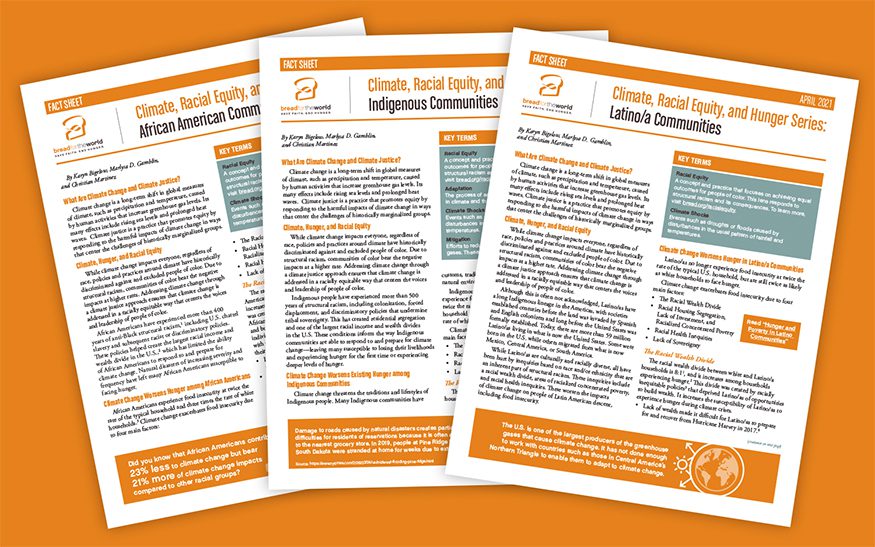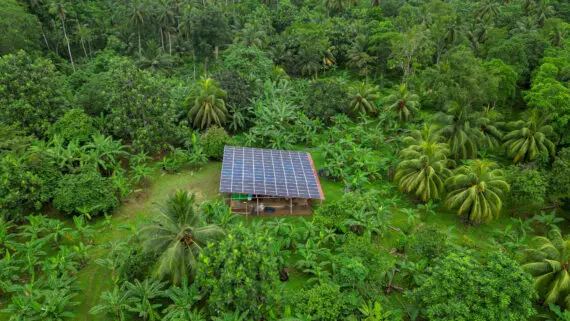By Karyn Bigelow
Climate change affects everyone, but some populations are disproportionately impacted. In the United States, those groups include Black, Indigenous, and Other People of Color (BIPOC). Systemic racism both past and present means that members of these communities are more likely to live with poverty and hunger.
Bread for the World recently published our newest series of one-pager resources on the intersections of hunger, racial equity, and climate change in the United States. The three pieces look at the specific impacts of climate change in African American, Indigenous, and Latino/a communities.
In order to slow climate change and respond to its current and projected impacts, the United States must use a climate justice approach. This means simply that all plans for mitigation and adaptation, as well as their implementation, need to take into account the systemic inequities that have led to our country’s current divisions based on race, ethnicity, gender, and other ingrained biases. As noted, such injustices make some people far more likely than others to be affected by climate change, and as a group, these people have contributed far less to the problem than other Americans. Climate justice is person-centered, responding to the unique needs of those in the most immediately and most severely impacted communities. Its principles should be an integral part of any initiative from its beginnings.
African Americans, Indigenous people, and Latino/as also have higher rates of food insecurity than white households. Bread’s analysis identifies four main ways that climate change exacerbates hunger in BIPOC communities: (1) the racial wealth divide; (2) housing segregation, racialized concentrated poverty, and disinvestment in neighborhoods; (3) racial health inequities; and (4) lack of sovereignty, meaning that communities do not have the agency needed to make independent decisions in the best interests of their people.
The one-pagers include four recommendations to strengthen efforts to keep climate change from increasing hunger in BIPOC communities. These focus on ensuring that BIPOC communities have the resources and space they need to make decisions that protect their people from both hunger and damage caused by climate change.
To develop a climate justice framework that centers racial equity:
- Honor the expertise and leadership of BIPOC communities in the planning, implementation, and evaluation phases of all climate response efforts.
- Center the leadership of BIPOC communities in developing strategies to reduce racialized concentrated poverty, racial health inequities, and racial wealth divides.
- Equitably increase investments in BIPOC-led initiatives to strengthen infrastructure that is at risk of severe damage or destruction as climate change disasters become more frequent and more severe.
- Walk in solidarity with BIPOC communities as they exercise their sovereignty to make decisions to prepare for and respond to climate change.
See Bread’s one-pagers on African American, Indigenous, and Latino/a communities to learn more about the intersections of hunger, racial inequity, and climate change.
Karyn Bigelow is a research analyst with Bread for the World Institute.



